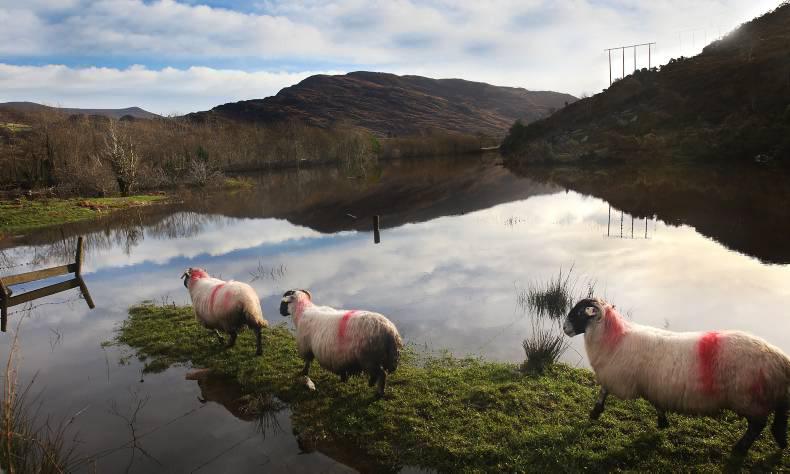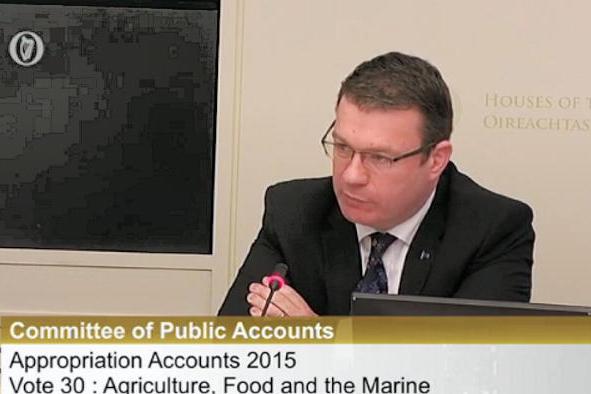Pedigree breeding policy dictates the genetic composition of the national beef herd. With 80% of suckler herd calvings sired by stock bulls, pedigree breeders are the primary source of new genetics for the commercial sector. As such, the current breeding policy in pedigree herds drives the course of the beef industry and cattle type produced for 10 years into the future. It is extremely important for the purebred breeder to be able to gauge the demands and realities of the commercial industry. From the time a purebred producer makes a breeding decision, it will be three to four years until the commercial offspring of that decision are processed into beef. The purebred operator must also have vision and the judgment to anticipate the genetic demands of the beef industry in the future. In this article we get the opinions of key players right across the pedigree breeding sector, on important issues. We pose the three questions central to the development of a sustainable pedigree industry in the future.
Philip Crowe, Powerful Genetics: Powerful genetics was set up by Philip Crowe 10 years ago. It aims to select the very best bulls and make them available to the Irish pedigree breeder and top-end commercial farmer. It initially specialised in UK-based Limousin sires, but recently added Charolais, Simmental, Salers and Blonde sires to its sire portfolio. The company focuses on 100% beef sires, 90% of which are sourced in the UK. John Lynch, Dovea Genetics: John Lynch is beef programme manager at Dovea Genetics. The company specialises in the provision of semen sales and training services. The beef programme offers sires covering everything from the dairy market, replacement market, weanling export and finishing markets. Bull stud contains all breeds with 70 bulls between beef and dairy.
Pate Donnellan ICBF National Bull Breeding Programme: Pat Donnellan is an animal evaluation analyst with ICBF and has vast experience in animal breeding in both dairy and beef. He also has an active role in the ICBF Gene Ireland Programme, which is focused on furthering genetic developments in the pedigree Industry.
Q1 What drives your breeding policy/business model?
Philip Crowe
No doubt about what is driving my business forward is the demand for the premium AI sire targeting the upper end of the domestic and export pedigree markets. For sire selection, we definitely concentrate on bulls that can complement the cow – size, growth, exceptional carcase traits and calving ease are at the core of our selection policy. Take the Limousin breed – our pedigree sires have lifted the breed to a new level of performance and popularity. The latest ICBF terminal listing shows 12 out of the top 15 AI Limousin sires from our stable. On the back of this, a strong export trade with Britain and Northern Ireland has been developed for elite Irish stock. Success at sales is what drives semen sales. Our sires have been very successful at premier sales and national shows in recent years. Another area of sales growth is for sexed female semen from Salers, Shorthorn and Simmental sires.
John Lynch
The one main driver of our business is the market (demand). Our four main markets (in no particular order) are 1. Dairy beef, 2. Maternal, 3. Terminal, 4. Easy calving. Our bull selection is based around each market. Even though some of the markets are inter-linked, bulls need to be selected with a particular market in mind (Some bulls are purchased with one particular trait very strong, ie three generations easy calving, while other bulls, ie maternal, still require good terminal traits to become a successful sire). Bull selection is becoming harder and harder due to the emphasis across all markets on calving ease. It is now crucial that a bull is relatively easy-calving, as people seem to becoming more aware of the fact that a live calf per cow per year is critical to profits on a beef farm.
Pat Donnellan
The main aim of the Maternal Beef Gene Ireland Programme is to continually improve the milk, fertility and calving ability of Ireland’s suckler cows. The reason for this is that the national suckler herd has been making good progress for terminal traits such as growth rate, liveweight and carcase conformation. However, this progress has been at the expense of maternal traits such as calving ability, fertility, milkiness and survival. These maternal traits have been on the slide for a number of years now. It was against this backdrop that ICBF and industry partners (Dovea, NCBC and Beef Herdbooks) began working very closely together in order to pull together a targeted approach on maternal breeding – called Gene Ireland.
Q2 In your opinion, is pedigree breeding on the right track or, if not, where does it need to go?
Philip Crowe
We need to focus more on the UK model, where a pedigree breeder only sells the very best bulls for breeding. For instance, take some of the top UK breeders – out of 50 males born for breeding only 15 to 20 bulls are sold for breeding. In Ireland it seems every pedigree bull that is born tries to find a home for breeding somewhere. This doesn’t make economic sense and isn’t good for breed improvement. A stricter culling policy needs to be implemented. Another breeding issue I feel strongly about is this idea that a bull can be all things to everyone – it can’t. Terminal and maternal traits are distinctively different. I believe if a bull or breed has strong genetic lines for carcase and growth traits that these should be encouraged and not diluted with average lines. Remember, we are in the business of selling meat so we need commercial calves with high growth potential and conformation. Gestation length is another issue the continental breeds need to work on, especially with an increasing dairy herd. Breeders need to target short gestation sires in a proportion of mating to target at this market.
John Lynch
By and large, breeding is on the right path. However, the market is looking for easier calving bulls each year and pedigree herds need to acknowledge this in their breeding strategy. Breeders totally following the show ring tend to be using genetics that stand out. These extreme genetics do present calving issues and as such are less sought after in commercial circles. Pedigree breeders who continue to breed balanced (acceptable calving difficulty, terminal and maternal traits with no extremes) functional cattle will be rewarded in years to come. This is the path to follow to ensure sustainability of the sector.
Pat Donnellan
Yes it is headed in the right direction. Pedigree breeders are embracing technical information (€uro-Stars) and new technologies (genomics) in increasing numbers when they are making their breeding decisions. Breed societies are also playing a leading role in terms of keeping the correct beef breeding strategy for Ireland on track. Sure, we would all like the negative trends for the maternal traits to be better and changing these national trends will take time. But again, over 250 pedigree breeders across all the breeds are participating in Gene Ireland, making great efforts to identify bloodlines in their breeds that will help reverse these trends.
Q3 Do you see breeding decisions in pedigree and commercial herd interlinked or going in different directions?
Philip Crowe
I definitely see breeding decisions being interlinked. But both pedigree and commercial breeders need to know the market they are targeting whether it’s weanling, beef or breeding stock. Take the average suckler farmer with 20 cows. Why would he/she use an average bull for growth and carcase but strong maternally, just to keep four breeding heifers? Output potential will be back, with the male calves taking a hit in terms of weight at sale and value per kilo liveweight. We need to be sensible here. Pig breeding impresses me greatly with clear distinctions between terminal and maternal lines and they are among the most efficient farmers on the planet.
John Lynch
Breeding decisions have to be interlinked. Bulls heavily used in the commercial sector have to be functional and balanced cattle. Most pedigree breeders recognise this and understand that this is their main sale market. Commercial guys should stick with the tried and trusted sire lines. However, pedigree breeders must also be encouraged to use new sires. This ensures the gene pool doesn’t become too narrowly focused. A decision of new genetics should be based on a combination of pedigree lines, physical attributes and breeding values – not one over the other. The reasoning of this selection approach needs to be communicated more vigorously across the entire industry
Pat Donnellan
The breeding decisions are getting increasingly interlinked. Pedigree beef breeders are putting increased emphasis on having good €uro-Star figures on their stock at sale time. For example, on average, about 70% of pedigree bulls sold at sales in 2014 had at least 4 stars for the terminal index. Including €uro-Stars in their sire selection decisions gives a commercial farmer a far wider selection of bulls with good €uro-Star ratings from which to pick. It is also now commonplace for breeding figures to be viewed online before a decision is made to see a bull. The ICBF bull search had over 800,000 searches for bulls across 26 breeds in 2014. Traits such as docility, calving ease and milk and fertility are top of the vast majority of both pedigree breeders’ and commercial farmers’ must-have lists when they are selecting what sire to put a pedigree cow in calf to or when buying a new stock bull.










SHARING OPTIONS